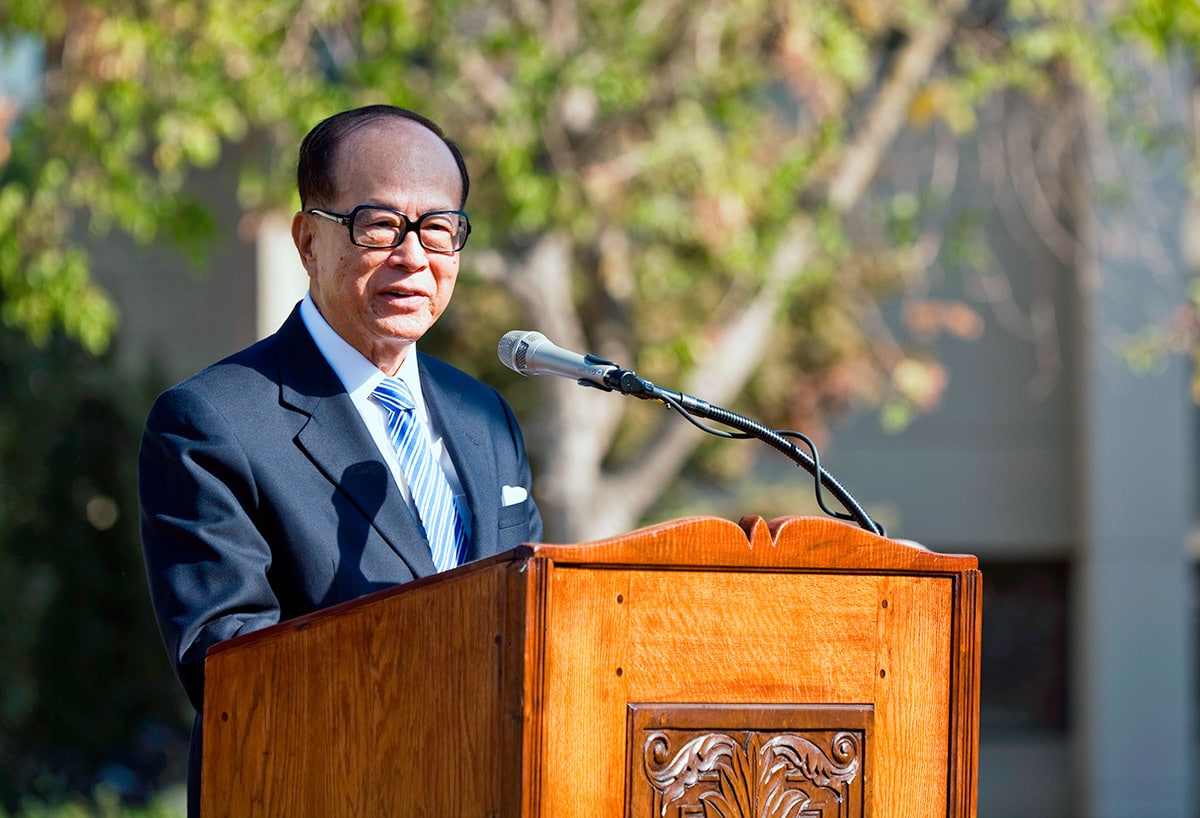Who is Li Ka-shing (李嘉诚)? The ultimate profile.
Li Ka-shing is a Hong Kong investor, philanthropist, and business magnate. He is the second richest man in Asia according to the “Bloomberg Billionaires Index”.
Li was born in Chaozhou of the Guangdong province in China in the year 1928, making him 88 years old; which represents good luck and fortune in the Chinese culture.
Li is of Teochew descendants, occasionally referred to as the ‘Jews of the East,’ a term coined by author Leo Paul Dana in his book ‘Entrepreneurship in Pacific Asia: Past, Present & Future‘.
Li Ka-shing’s father died when Li was only fourteen years old, he had no other choice but to leave school ahead of time to support his family.
He found a job in a plastics trading company, wherein he laboured for 16 hours per day.
In 1950, Li Ka-shing started to form his own company.
From there, he was able to build a multi-billion dollar empire consisting of manufacturing, retail, tech, electricity, and multiple investments in asset classes including communications and real estate.
How much is Li Ka-shing worth today?
According to Forbes, his net worth is approximately $29 billion.
What does Li Ka-shing do now?
Li Ka-shing is one of the most generous billionaires in Asia, leading many philanthropic initiatives such as the Li Ka-shing Foundation and The Li Ka-shing Center at Stanford University School of Medicine.
Although Li is among the wealthiest people in the world, he went through many challenges and was not always successful. His story is an ultimate representation of the rags to riches cliché.
With his decades of experience in business and life, Li can offer sound advice that could serve as a guiding principle for many people who aspire to be successful. He is an epitome of victory in spite of some of the unfavourable circumstances he has lived through.
Li is a living example of success, demonstrating how it could be possible for anyone who sets SMART goals and commits to them, to succeed.
Here are Li’s top six tips and traits for success:
1. As a successful leader, one ought to spend longer than others planning for the future.
2. Even if markets become bearish, never be too pessimistic; and also if markets become bullish, never be too optimistic.
3. A solid reputation for yourself and your business is a priceless asset that is not mirrored in the yearly accounts.
4. It is not an issue of how powerful or confident you are; if you are not humble or do not have a good heart, you will not meet real success.
5. Attitude and wisdom are equally important ingredients for success. An upright leader inspires others to greatness, and a bad leader dominates his subordinates to cause distress.
6. The key to success lies in the capacity to accept change and adapt; the ability to meld traditional ways with new ways of thinking is essential.




